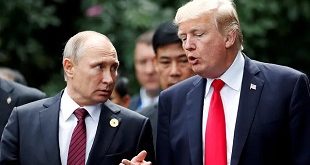
Health experts warn on the use of herbs for treatment
Kampala, Uganda | PATRICIA AKANKWATSA | Health experts have warned against the use of herbal medicines in treating Tuberculosis (TB) which they say has contributed to the rise of Multidrug-resistant tuberculosis (MDR-TB) cases in the country.
While speaking at a media cafe organised by Health Journalists Network in Uganda (HEJNU) to enlighten journalists on TB and how substandard drugs contribute to the MDR-TB in Uganda, Dr. Mary Nabukenya Mudiope, the Project Director USAID TB flagship project, said herbal remedies do not contain adequate TB doses hence leading patients to develop MDR TB.
“Herbal medicine will help you solve some of those issues you have presented with because the germ is now receiving some dose of that treatment but not complete so some of those symptoms will resolve as the germ prepares itself to come back in another form and when it does, it becomes resistant to drugs and so you need stronger drugs to defeat it,” said Dr. Nabukenya.
She also expressed concern over the type of herbs used, their quantity and prescription of the medicine.
“From our engagements with the traditional healers on the herbs they are using to treat TB, we learnt that some get the drugs from the pharmacy since they are antibiotics and mix them with their herbs. So when one takes it, the symptoms subside but aren’t cured of TB if it’s TB. It will come back worse than what it would have been if one had taken the right treatment,” Dr. Nabukenya told press in Kampala.
Worldwide, TB is one of the leading infectious diseases with the highest case fatality rate. In Sub-Saharan Africa, drug resistance is becoming a great challenge in the fight against TB.
Multidrug-resistant tuberculosis (MDR-TB), a global public health problem, is transmitted through air from person to person but may sometimes develop when the bacteria become resistant to the drugs used to treat TB as a result of poor adherence to or wrong prescription of TB treatment.
It remains a priority for the World health Organisation through the End TB by 2030 strategy. In 2018 alone, 186,772 cases of MDR-TB were detected and notified globally. During the same year, Africa registered an estimated MDR-TB incidence rate of 7.3 per 100 000 population.
Uganda is one of the “30 high burden TB/ Human immunodeficiency virus (HIV)” countries that collectively account for 90% of the global TB burden. While the World Health Organisation (WHO) had removed Uganda off the list of TB high burden countries in 2015, a recent Uganda population-based TB prevalence survey suggests that incidence and prevalence rates in the country are far higher than previously believed.
In 2019, an estimated 88,000 people fell ill with TB in Uganda, and an estimated 15,600 people died. Furthermore, in 2019, of the estimated 1,500 drug-resistant TB (DR-TB) cases, only 559 were diagnosed and started on treatment, and 96% of the patients who started treatment in 2017 completed treatment.
Dr. Susan Akello Adukun, an MDR TB specialist from Mulago Hospital, says Uganda currently has about 700 patients with MDR TB meaning that every month, 60 people get infected with the disease. She says of every four patients who get MDR TB, three are men.
Dr. Akello said the treatment of MDR TB currently takes between 9-20 months with a lot of side effects.
“When there’s MDR TB, we treat for 9-20 months, we use more than five drugs on the minimum to manage the MDR TB and the drugs have serious side effects for example fast heartbeat, visual loss, mental problems, depression or psychosis and skin rush among others,” she said
Dr. Akello says the cost of treatment for MDR TB is seven times more than that of drug-sensitive TB.
Government and partners spend about Shs.1.9 million to treat a patient with Drug-sensitive TB for six months.
Dr. Akello encouraged Ugandans to go for early diagnosis and treatment for TB which are both offered free of charge in government health facilities.
Kenneth Mwehonge, the Executive Director of HEPS Uganda, wants government to carry out tests of all batches of medicines imported by first-line buyers accredited in this country to check substandard medicines. This he says will help reduce MDR TB cases in the country.
 The Independent Uganda: You get the Truth we Pay the Price
The Independent Uganda: You get the Truth we Pay the Price



